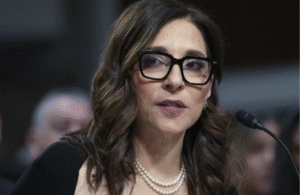For the first time in 170 years, Cadbury, the famous chocolate maker, has been removed from the list of royal warrant holders. The Birmingham-based company had been granted its first royal warrant as a chocolate and cocoa manufacturer by Queen Victoria in 1854. However, under King Charles, Cadbury has lost this prestigious endorsement.
Mondelez International, the US company that owns Cadbury, expressed disappointment over the removal of the royal warrant.
King Charles has awarded royal warrants to 386 companies that previously held them under Queen Elizabeth II, including well-known brands like John Lewis, Heinz, and Nestle. Companies that hold the Royal Warrant of Appointment, which is granted for up to five years, are recognized for providing goods or services to the British monarchy.
Among the King’s newly appointed warrant holders are several food and drink companies, including Moet and Chandon, Weetabix, and chocolate makers Bendicks and Prestat Ltd. These warrant holders are permitted to use the royal coat of arms on packaging, in advertisements, or on stationery as a mark of distinction.
Earlier this year, the King was urged by the B4Ukraine campaign group to withdraw warrants from companies still operating in Russia following the invasion of Ukraine. Mondelez, which owns Cadbury, and consumer goods company Unilever were both stripped of their royal endorsements.
A Mondelez spokesperson expressed disappointment, saying, “While we are disappointed to be one of hundreds of other businesses and brands in the UK not to have a new warrant awarded, we are proud to have previously held one and fully respect the decision.”
Unilever, which had most recently received a royal warrant from Queen Elizabeth II, also expressed pride in its long history of supplying the royal household.
Professor David Bailey from Birmingham Business School explained that losing the royal warrant would increase costs for Cadbury, as the brand would need to remove it from all its packaging. He described a royal warrant as a form of “seal of approval,” which traditionally brought considerable advantages to the UK economy. In an interview, Professor Bailey emphasized that British companies benefited from receiving the royal endorsement, asking, “What is a royal warrant for, if it isn’t to support British jobs and production?”
Earlier this year, British chocolate giant Cadbury marked its 200th anniversary, celebrating the opening of its original grocery store by founder John Cadbury on March 4, 1824, in Birmingham, where he sold cocoa and drinking chocolate.
The brand grew significantly when John Cadbury’s sons took over, leading to the creation of the Bournville factory, which eventually became the largest cocoa manufacturer in the world.
In 2010, Cadbury was acquired by US food company Kraft in a controversial deal. By 2012, Cadbury became part of Kraft’s Mondelez division.














